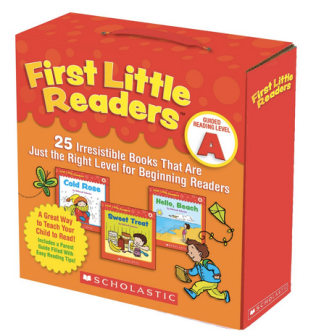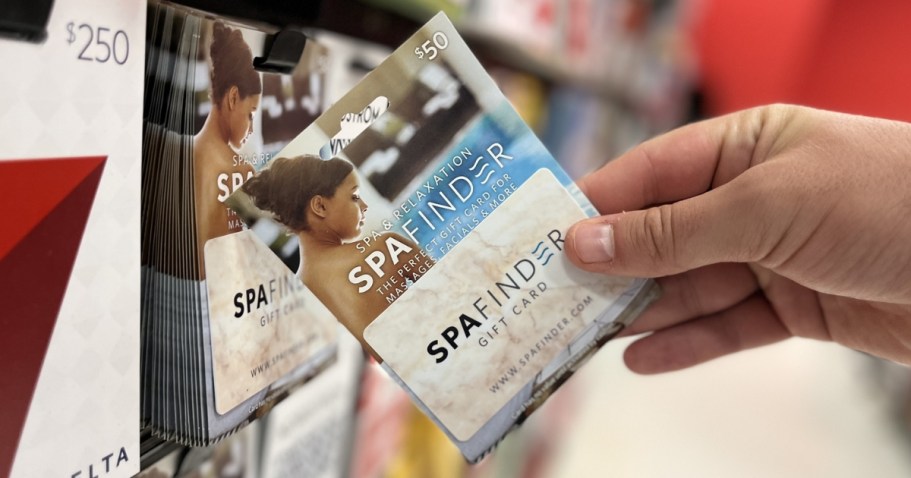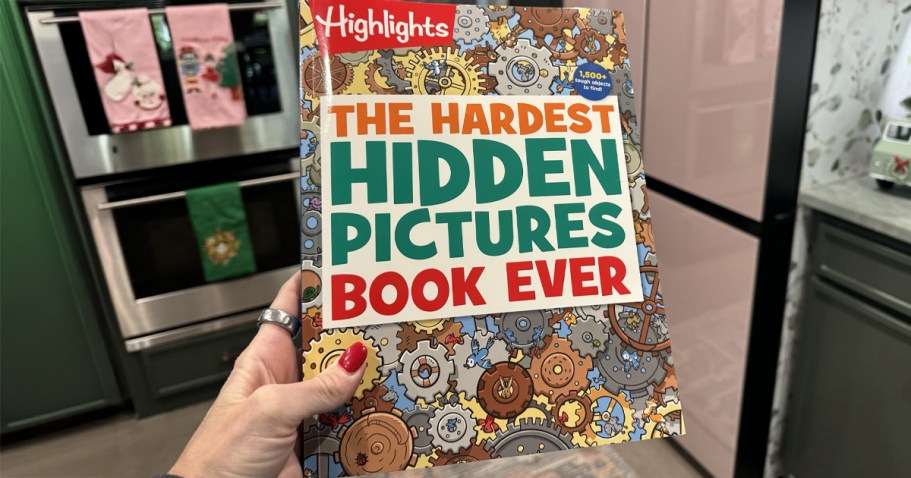Amazon: First Little Readers Parent Pack w/ 25 Books ONLY $8.25 – Lowest Price (#1 Best Seller)
Do you have a new/beginning reader in your family? Hurry over to Amazon.com to snag this First Little Readers Parent Pack with 25 Books for Guided Reading Level A for ONLY $8.25! That makes each individual book just 33¢!

Shipping is free with a $35 order or get free 2-day shipping with Amazon Prime.
(Thanks, Hollie!)








Do NOT let your kids read sight words. Find a phonetic reading program! Sight words cause dyslexia and functional illiteracy.
Do you have any suggestions?
The National Right to Read website is a good place to start. Nrrf.org
https://improve-education.org/id65.html
Also of note is #37 on the left side.
I’m sorry but that is not true! If it was then most of society would have those problems.
Dyslexia is an inherited condition.
Interesting that the path to help a dyslexic is phonemes and phonetic awareness.
Yes it may be helpful with those methods but sight words do not CAUSE dyslexia. Two very different statements and saying that it causes dyslexia is extremely misleading.
In many cases learning sight words does cause dyslexia.
You can’t cause a condition that is hereditary
Except when it isn’t. Also, since phonics is the “cure”, why not just use phonics to begin with?
I prefer to rely on medical research rather than opinions
If you rely on research then you would be an avid supporter of phonics. If phonics is the cure for reading problems, why not start with phonics?
You are clearly misinformed. Please be careful on where you find your research. I have been an elementary special education teacher for years. Dyslexia is NOT caused by reading sight words. That is ridiculous. Many schools study the Dolche sight words. My daughter is four and she is already reading….due to my combination of sight word/phonic book teaching approach. Seriously, do not mislead parents trying to do help their child…..I think these books combined with Dolche words would be an excellent beginning for any parent trying to introduce their child to reading. =)
As a teacher and parent, I disagree with your statement that “Sight words cause dyslexia and functional illiteracy”
Not true. My youngest taught himself to read by learning sounds and then sight words with some DVDs, continued sounding out words and has throughout elementary school amazed his teachers with his ability to read and comprehend text far beyond his peers. He was the only one of my kids to learn sight words first and is my best reader (in a family of “gifted” children). Early elementary classes focus on “popcorn words” or “high frequency” words – which are just sight words by another name.
They need to learn letter sounds, too, but to make a blanket statement about learning sight words causing reading problems is irresponsible. That’s how we all read as adults – mostly by recognizing words on sight.
I am a kindergarten teacher and can say with confidence that reading sight words does not cause any of those issues. That’s a bit absurd, quite frankly. For ten years I’ve taught kids to read by using a balanced approach to reading instruction (sight words/”whole language” AND phonics) and I’ve yet to have a former student be diagnosed with dyslexia or anything like that later in life.
I’ll just throw out there that sight words are taught in almost every preschool/kindergarten. If they were found to cause learning disabilities I highly doubt they would be so widely used, also our society would be full of dyslexic children and adults if using sight words was one of the causes.
No kidding. That comment was a whack generalization based on NOTHING
Agree!
Hello kindergarten teacher an everyone on my team teaches students to learn sight words. We also use the phonics process as well. They kind of go hand in hand. I will say sight word books helps to build confidence with early readers.
Actually, there is a lot of research to support phonics over sight words, and none that supports sight words because it is an inferior way to teach a phonetic language.
Where are you finding this information?
I, can you share some of that research? As a reading specialist, I haven’t read what you’ve stated above before.
Go to the national right to read foundation website. nrrf.org
No, I’m not misinformed. You’re attempts to discredit me don’t help anyone.
As a reading specialist and former kindergarten teacher, I’m very confused by this claim. I completely agree in the benefits of teaching phonics. I don’t think anyone here is disagreeing with that approach. I do, however, wonder how students are supposed to learn sight words (which are generally considered sight words, because in order to read a large majority of them you need to be able to identify them by sight, as they can not be phonetically sounded out i.e. the, was, have, girl, etc), which are me essay to be able to read. This is why most schools and teachers believe in a balanced approach to literacy in which students are provided with phonics instruction, as well as a whole language approach.
Exactly. As a teacher, and parent, there is nothing that irritates me more than misinformed people spreading their “knowledge.” Parents, please do your research and talk with experts in your area before making your decision. Both phonics and site words have their place.
Has anyone used these particular books with success? The reviews online seem mixed…
As an educator that teaches reading intervention, I believe that a child needs to read books they are interested in. For example, my almost 4 year old girl is currently very into PAW Patrol. The Easter Bunny brought her 2 easy reader PAW Patrol books and she hasn’t put them down. She already recognizes the words because she is interested and WANTS to read them. I could give her a book on the same level say, about Sponge Bob, and she could care less.